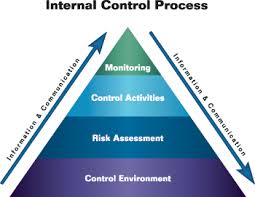Crossing a New Bridge: Compliance Officers and Financial Controls
 Compliance officers face plenty of challenges. The list of close allies always includes the General Counsel, Internal Audit, Human Resources and Procurement officials. In two recent surveys (here and here), CCOs reported that they do not have a strong working relationship with the CFO and typically do not get involved in the design and implementation of financial controls. That is a real significant problem.
Compliance officers face plenty of challenges. The list of close allies always includes the General Counsel, Internal Audit, Human Resources and Procurement officials. In two recent surveys (here and here), CCOs reported that they do not have a strong working relationship with the CFO and typically do not get involved in the design and implementation of financial controls. That is a real significant problem.
Lets start with another obvious point – financial controls are the corporate mechanism for ensuring that money is used for proper activities. CCOs have a vested interest in making sure that money is used for proper purposes – fraud, bribery, kickbacks and other financial misconduct can have a direct impact on corporate ethics and compliance.
So why is compliance not coordinating with CFOs in the internal controls area? That is a mystery to me but maybe the answer lies in the fact that CFOs have grown in importance since Sarbanes-Oxley and developed their own operating procedures to ensure compliance with this important law.
Compliance professionals need a seat at the financial table and they need it now. It is one thing to defer to a professional’s expertise, but it is another thing to keep the CCO out of the financial picture altogether. Something has to change in this area, especially given the new COSO framework – fraud and bribery are specific issues for focus and CCOs are a natural partner in this area.
The BHP Billiton, Bio-Rad, and other enforcement actions underscore the importance of CCO participation in assessing and designing internal controls, especially related to the payment of money to third parties and payments for gifts, meals, entertainment and travel expenses. Financial officers have a vested interest in compliance as well. They want to make sure that the controls are reasonable and operate effectively to ensure compliance.
CCOs have a number of significant responsibilities that depend on close collaboration with CFOs, the Controller and other financial officers. These include ensuring:
- Proper access to money for employees to avoid misuse for bribery, conflicts of interest, theft, embezzlement, kickbacks or other improper purposes;
- Payment of appropriate amounts to third party intermediaries;
- Payment of appropriate amounts to vendors/suppliers;
- Payment of money to charities and other organizations that are not tied to foreign officials; and
- Payment of appropriate funds for gifts, meals, entertainment and travel expenses for employees, customers and other persons outside the organization (e.g. foreign officials)
CCOs and CFOs share a common purpose in making sure that all payments are properly made and documented as required. With this common interest in mind, CCOs and CFOs are natural partners on this important task.
 CCOs have to dig into the financial controls and ensure that they are properly designed for the risks they face in each of the above-referenced areas. CFOs need to invite CCOs into the room to begin this process of collaboration. It may be the last barrier that CCOs face but it is an important barrier.
CCOs have to dig into the financial controls and ensure that they are properly designed for the risks they face in each of the above-referenced areas. CFOs need to invite CCOs into the room to begin this process of collaboration. It may be the last barrier that CCOs face but it is an important barrier.
CCOs are not seeking to design and implement their own solutions but they need to offer insight and suggestions on financial controls to promote the company’s interest in its ethics and compliance program.















1 Response
[…] violations. The FCPA Blog explains a Russian move on criminal liability for companies. Mike Volkov shows compliance control on corporate purse-strings. Tom Fox keeps talking […]